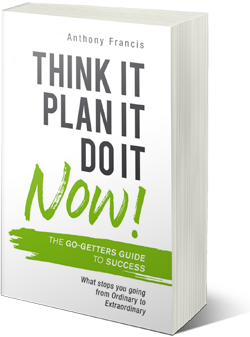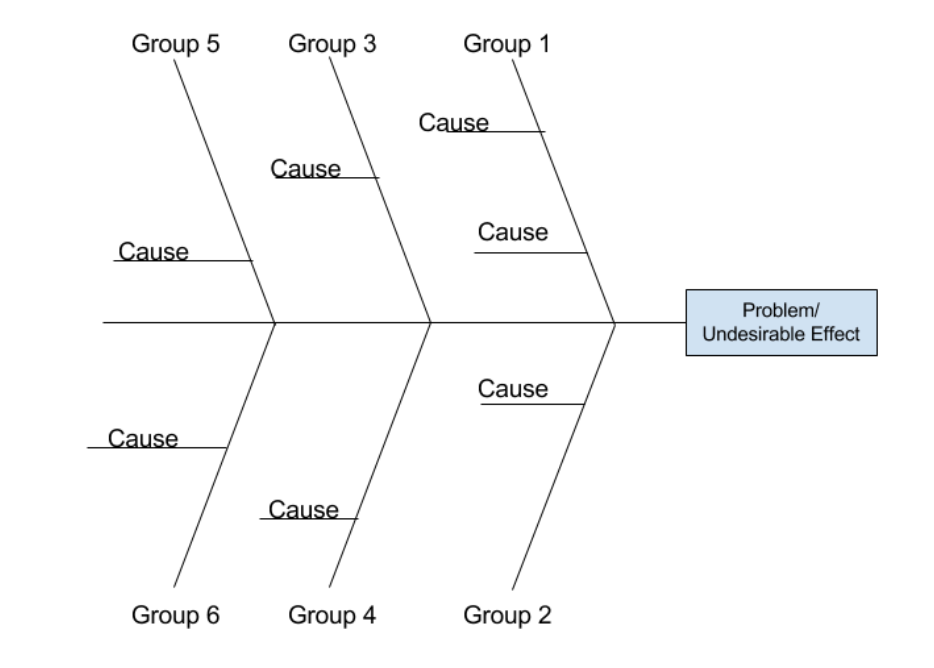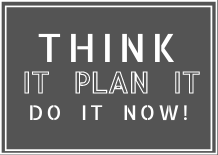
by Anthony Francis | Mar 17, 2023 | Uncategorized
None of us our perfect, we all need help and different stages in our lives. That’s why knowing your limitations and getting a coach can be incredibly beneficial in many aspects of life, including personal and professional development.
Here are a five reasons why:
- Gain self-awareness: It’s important to know that a coach can help you to identify your strengths and weaknesses, therefore allowing you to gain a better understanding of your limitations. This self-awareness can help you to make better decisions and avoid overextending yourself.
- Receive personalised guidance: A coach is not there to tell you what to do. They provide personalised guidance and support that is tailored to your unique needs and goals. By doing so they help you to develop new skills, overcome challenges, and achieve success in areas where you may have struggled in the past.
- Stay accountable: One of the most important aspects of a coach is that they help you to stay accountable for your actions and commitments, ensuring that you follow through on your goals and make progress towards success.
- Avoid burnout: By knowing your limitations it can help you to avoid burnout and prevent yourself from taking on too much. With a coach they will help you to establish boundaries and prioritize your tasks, allowing you to be more productive and efficient without sacrificing your health and well-being.
- Gain perspective: Friends and family members are great at supporting us, by a coach can offer an outside perspective and help you to see things from a different point of view. This can help you to overcome limiting beliefs and thought patterns and gain new insights that can lead to greater success and fulfilment.
So what can you take from this?
Overall, knowing your limitations and working with a coach can help you to achieve your full potential and reach your goals more efficiently and effectively.
For me processes don’t execute projects, people do, and if you or your organisation would like to more about how my business excellence framework, coaching and mentoring can contribute to your business success, then click on the link in my bio, or send me a DM to arrange a call to find out more.
#team #process #performance #thinkitplanitdoitnow
#leadership #success #coaching #productivity #teamengagement #projectmanagement #communication #collaboration #projectmanagers #job #accountability

by Anthony Francis | Mar 16, 2023 | Uncategorized
There is no one-size-fits-all formula for becoming successful, as success can mean different things to different people. However, here are five general steps that I believe can help set you on the path to success:
1. Set clear and specific goals: Success requires knowing what you want to achieve and setting clear and specific goals to help you get there. They can’t be vague., so make sure your goals are achievable, measurable, and have a timeline.
2. Develop a plan: Once you have your goals set, the next step is to develop a plan for how you will achieve them. This could involve breaking down your goals into smaller, manageable steps or identifying the resources and support you need to achieve your goals.
3. Take consistent action: Success isn’t easy, it requires consistent effort over time. So stay focused on your goals and take action every day to move closer to achieving them.
4. Learn from failure: Failure is a natural part of the success journey. So don’t take it personally. Instead of giving up, learn from your mistakes and use them as opportunities to grow and improve.
5. Stay motivated and resilient: Success is not achieved overnight. So stay motivated and resilient by celebrating your successes along the way and remembering why you started on this journey in the first place.
It’s important to remember, success looks different for everyone, so make sure you are setting goals that are meaningful and important to you. By following these five steps and staying committed to your goals, you can set yourself on the path to success in your personal and professional life.
In my book Think It Plan It Do It Now! which is available on Amazon, I cover all of the above and more, so get you copy now.
For me processes don’t execute projects, people do, and if you or your organisation would like to more about how my business excellence framework, coaching and mentoring can contribute to your business success, then click on the link in my bio, or send me a DM to arrange a call to find out more.
#team #process #performance #thinkitplanitdoitnow
#leadership #success #coaching #productivity #teamengagement #projectmanagement #communication #collaboration #projectmanagers #job #accountability

by Anthony Francis | Mar 8, 2023 | Uncategorized
First let’s define what a programme is in relation to project management. It’s a cluster of related projects that are managed in a coordinated manner, so they can be executed simultaneously and share resources, activities and stakeholders.
It’s important to remember that the balance of skills required of a programme manager often changes as the programme develops. Therefore the person with the skills to identify or define the programme may not necessarily be the right person to drive through its implementation.
So it’s important that whoever is appointed has sufficient seniority and credibility to advise project teams on their projects, and the ability to find ways of solving or pre-empting problems.
Now one if the first acts of the programme manager should be to have an appropriate work breakdown structure for each project. This is important as it allows the programme manager to depict the interdependencies between projects with regard to content and time frame.
This is also a vital stage in defining the important milestones for each project, which are later used to then monitor the programme.
In addition it would be useful to use a strong multi-project program management tool, especially if your programme involves remote resources.
On large and complex programmes it may be appropriate to appoint other individuals to support the programme manager for some of the particular responsibilities, for example a risk manager, or a communications manager.
In closing, it’s important to remember that success in managing a programme greatly depends on how well each related project is performed and whether all possible conflicts with other related projects are resolved early.
It all starts with the programme manager clearly defining and communicating a clear and compelling purpose of the programme to all involved in the beginning.
So what are the skills and attributes needed to be a Programme Manager?
Leadership
Communication
Organisation
Time Management
Problem Solving
Negotiating
For me processes don’t execute projects, people do, and if you or your organisation would like to more about how my business excellence framework, coaching and mentoring can contribute to your business success, then click on the link in my bio, or send me a DM to arrange a call to find out more.
#team #process #performance #strategy #business #career
#leadership #success #coaching #productivity #mentoring #teamengagement #projectmanagement #communication #collaboration #projectmanagers #job #accountability #performance #programmanagement

by Anthony Francis | Mar 6, 2023 | Uncategorized
The saying goes “If you give a man a fish, you feed him for a day. If you teach a man to fish, you feed him for a lifetime.”
Well to solve problems creatively, there are a number of techniques available. However the one using the fishbone diagram will enable you to Explore, Identify, and Visualise all the possible causes of a problem, and by doing so enable the root cause of the problem to be identified.
In addition to being able to use this method in a group, it is helpful if you need to deal with problems on your own.
The fishbone diagram is also known as the Ishikawa diagram after its creator Kaoru Ishikawa. This diagram is also called the Cause and Effect Diagram, and it is usually used during the analysis phase of the Six Sigma process.
The process is simple, you start with the problem or effect, which is the head of the fish. In order to draw the different bones, you start with the fish’s head, one for each category of causes.
There are quite a few options for these bones. Most common is Man, Machine, Material, Method, also known as 4M.
The fishbone diagram is a simple tool to find the root causes of a problem, align the team, and involve everyone in the resolution.
Try it next time you or your team have a problem to solve.
For me processes don’t execute projects, people do, and if you or your organisation would like to more about how my business excellence framework, coaching and mentoring can contribute to your business success, then click on the link in my bio, or send me a DM to arrange a call to find out more.
#team #process #performance #strategy #business #career
#leadership #success #coaching #productivity #mentoring #teamengagement #projectmanagement #communication #collaboration #projectmanagers #job #accountability #performance

by Anthony Francis | Mar 1, 2023 | Uncategorized
Here is an acronym you may not have come across before SMEAC.
S = Situation
M = Mission
E = Execution
A = Any questions
C = Check understanding
This is a very simple yet effective catch-all briefing template, which can be refined or augmented as required. Try it and let me know your thoughts.
Situation:
Provides the context for the task and answers the question of ‘why’.
Mission:
The statement of the mission should align with all the comments about the definition of the aim and objectives.
Execution:
This describes the plan to achieve the outcome.
Any questions:
Always allow time in your briefing for questions.
Check understanding:
Always ask a few pertinent questions of those involved to confirm that their understanding is the same as yours.
If you or your organisation would like to more about how my business excellence framework, coaching and mentoring can contribute to your business success, then click on the link in my bio, or send me a DM to arrange a call to find out more.
#team #process #performance #strategy #business #career
#leadership #success #coaching #productivity #mentoring #teamengagement #projectmanagement #communication #collaboration #projectmanagers #job #accountability #performance

by Anthony Francis | Feb 27, 2023 | Uncategorized
Or to put it another way, without interference, performance would equal potential. There is a variety of forms of interference, including: lack of skills and knowledge, lack of motivation, frustration, and conflict to name but a few.
However, it was Timothy Gallwey’s simple yet powerful definition that performance (p) is equal to potential (P) minus interference (I), or p = P — I. That makes us see how performance can be impacted.
Individuals and teams can both benefit from this definition. Therefore, the question arises: what are the key detractors or interferences in our teams that need to be eliminated?
If performance is discussed in a conversation, I encourage people to decide whether too much interference is the problem or if the focus should be on developing a team or individual’s potential. Those points can provide team leaders with a starting point for intervention.
Coaching also plays an important part in developing performance as it can:
· Fine tune skills and actions
· Help clarify goals and develop action plans
· Assist in the developing steps to achieve long term strategic plans
· Enables the individual to work through their challenges
· Provide a collaborative and solution focused approach
· Is individual and results focused.
For me processes don’t execute projects, people do, and if you or your organisation would like to more about how my business excellence framework, coaching and mentoring can contribute to your business success, then click on the link in my bio, or send me a DM to arrange a call to find out more.
#team #process #performance #strategy #business #career
#leadership #success #coaching #productivity #mentoring #teamengagement #projectmanagement #communication #collaboration #projectmanagers #job #accountability #performance






